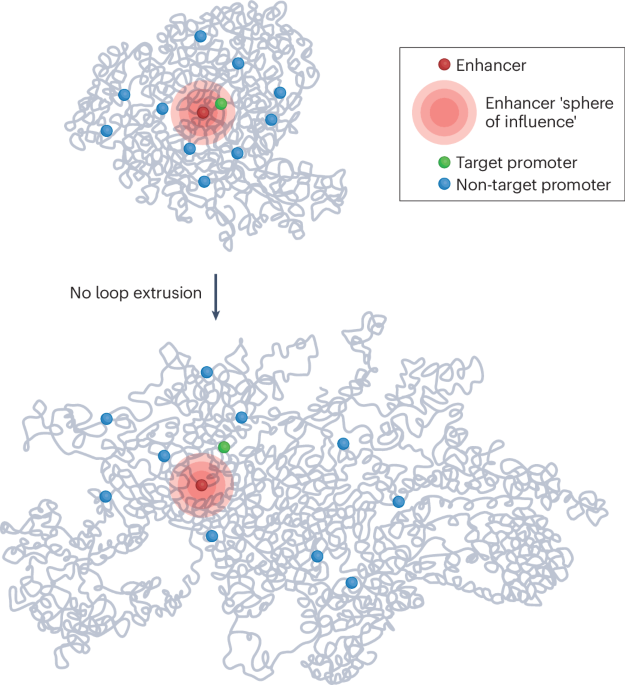Symmons, O. et al. The Shh topological domain facilitates the action of remote enhancers by reducing the effects of genomic distances. Dev. Cell 39, 529–543 (2016).
Dekker, C., Haering, C. H., Peters, J. M. & Rowland, B. D. How do molecular motors fold the genome? Science 382, 646–648 (2023).
Gabriele, M. et al. Dynamics of CTCF- and cohesin-mediated chromatin looping revealed by live-cell imaging. Science 376, 496–501 (2022).
Kane, L. et al. Cohesin is required for long-range enhancer action at the Shh locus. Nat. Struct. Mol. Biol. 29, 891–897 (2022).
Gómez Acuña, L. I., Flyamer, I., Boyle, S., Friman, E. T. & Bickmore, W. A. Transcription decouples estrogen-dependent changes in enhancer-promoter contact frequencies and spatial proximity. PLoS Genet. 20, e1011277 (2024).
Alexander, J. M. et al. Live-cell imaging reveals enhancer dependent Sox2 transcription in the absence of enhancer proximity. eLife 8, e41769 (2019).
Calderon, L. et al. Cohesin-dependence of neuronal gene expression relates to chromatin loop length. eLife. 11, e76539 (2022).
Rinzema, N. J. et al. Building regulatory landscapes reveals that an enhancer can recruit cohesin to create contact domains, engage CTCF sites and activate distant genes. Nat. Struct. Mol. Biol. 29, 563–574 (2022).
Karr, J. P., Ferrie, J. J., Tjian, R. & Darzacq, X. The transcription factor activity gradient (TAG) model: contemplating a contact-independent mechanism for enhancer-promoter communication. Genes Dev. 36, 7–16 (2022).
Williamson, I. et al. Bystander activation across a TAD boundary supports a cohesin-dependent transcription cluster model for enhancer function. Genes Dev. https://doi.org/10.1101/gad.352648.125 (2025).

